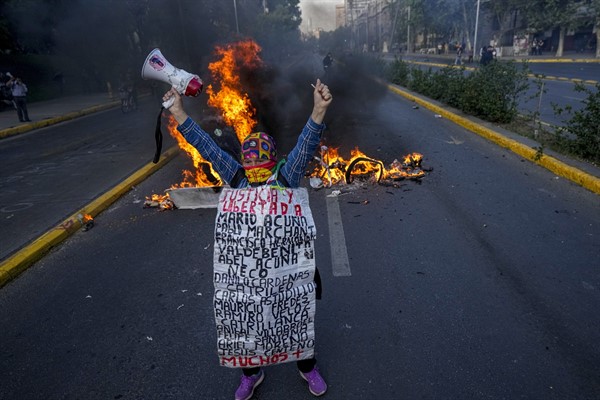Chile’s recently inaugurated president, Gabriel Boric, campaigned on a platform emphasizing urgent reforms to shore up social rights in Chile, particularly health care, education and pensions, all of which were a focus of the protests that erupted across the country in October 2019. He also emphasized the need to establish a new relationship with Chile’s historically marginalized and oppressed Indigenous peoples, which represent around 12 percent of the country’s population. But to do so, he will have to overcome formidable obstacles, including the daunting prospects facing the Constitutional Convention that is currently drafting a new constitution which is central to Boric’s government program, as well as the increasing confrontation with Mapuche radical organizations in southern Chile.
Chile’s Indigenous peoples have become critical political actors in the transformation the country is currently undergoing. While there has been long-standing historical conflict between the Chilean state and Indigenous peoples—especially the Mapuche, by far the largest of the country’s 10 Indigenous groups—the relationship has become increasingly conflictual in recent decades. Violence carried out by both state agents and some Mapuche groups that question the legitimacy of the Chilean state and oppose extractive investments in their traditional territory has drastically intensified, with victims on both sides.
Unlike elsewhere in Latin America, the Chilean Constitution does not recognize Indigenous peoples’ existence. A so-called Indigenous Law, enacted in 1993, acknowledged them as “ethnic” groups and accorded them cultural rights. It also established a market-based mechanism to return lands from which they had been dispossessed. Chile also endorsed the United Nations’ and the Organization of American States’ declarations on the rights of Indigenous peoples in 2007 and 2016, respectively.

